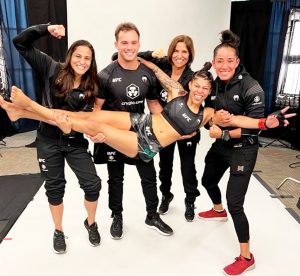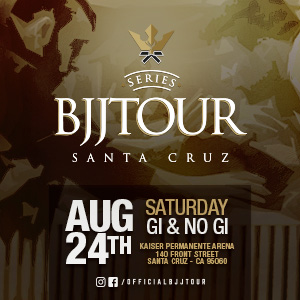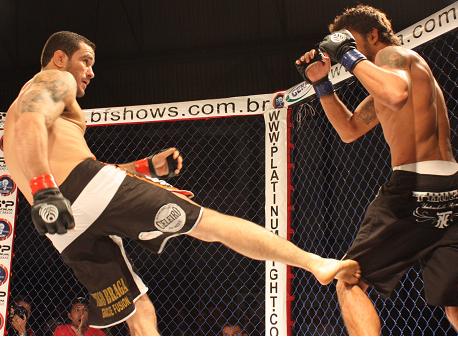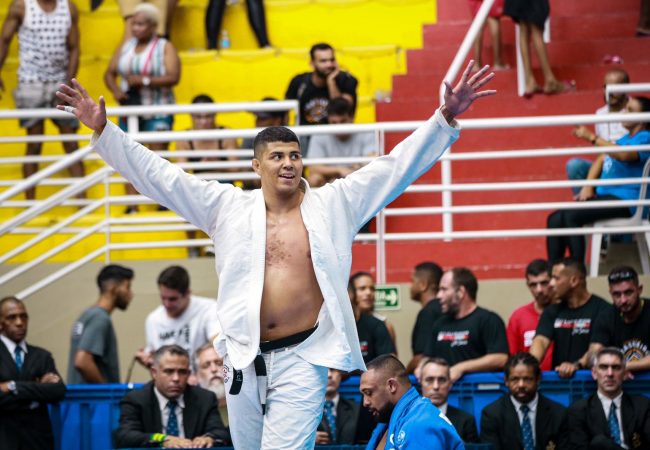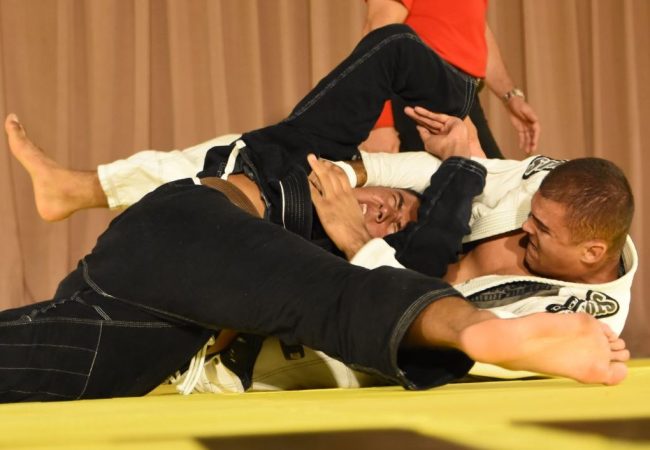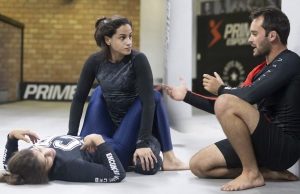
You run a successful academy in Brentwood, California, teaching Jiu-Jitsu to a highly diverse group: children, adults, seniors, police officers, business owners, competitors, and even war veterans. What are the key virtues a teacher must have to work so well with such a diverse group? And what mistakes can’t they make?
THIAGO GAIA: Yeah, it’s been amazing to be able to teach Jiu-Jitsu to all different kinds of people. I think the main thing for being successful is loving the day-to-day of the classes. You gotta understand that you’re a service provider. Even if you’re not having the best day, your job is to teach BJJ the best way possible and make sure people feel good in a nice environment. My students come to train mainly for the wellness that a Jiu-Jitsu workout gives them, so even if I’m not feeling 100%, I do my best to make the class enjoyable and productive.
I think a big mistake is just seeing the students as numbers for your business. That diminishes the importance of the work. I try to sanctify my work through the good that BJJ brings to my students’ lives – some lose weight and get out of depression, others build confidence and can defend themselves. Jiu-Jitsu is my livelihood, it’s what puts food on the table for my family, so the financial side is important. But the mistake is to just focus on that. Concentrating on the benefits BJJ has for the students’ lives is what gives deeper meaning to my work and makes me excited to go to the academy every day.
With around 10 pro MMA fights under your belt, what’s the biggest thing you learned from that thrilling journey in the ring?
MMA is the most intense sport I’ve ever done. It requires technical knowledge of various martial arts, an extremely high level of physical conditioning, great emotional control, and a lot of courage to accept the vulnerability of stepping into an octagon to face a trained opponent who’s trying to hurt you to win. It’s not for the faint of heart.
It’s exactly those difficulties that MMA imposed that made me grow as a person – facing my fears, using them to my advantage, and having a lot of faith in God. It’s easier to overcome the challenges of a fight when you have belief in God, rather than just hyper-rationalizing all the possibilities that could happen. Train your hardest to be prepared for anything, then leave it in God’s hands, because sometimes even the bad results can lead to benefits down the line that our human limitations can’t foresee. MMA brought me a lot of personal growth.
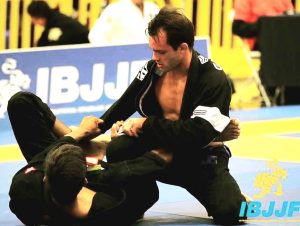
Some people like martial arts but are hesitant to join an academy and start training. What do you usually tell those people? What are the benefits that a Jiu-Jitsu academy offers people and society in general?
This is the eternal dilemma of the white belt interested in martial arts – they unconsciously believe they need to be prepared to start BJJ, because they think the more experienced students will just “beat them up.” That’s an illusion, it’s a fear their mind creates that prevents them from starting something that could change their life.
In a good academy, with an experienced and professional instructor, that student will be welcomed into a friendly and understanding environment that respects their limitations. That’s why in my academy, the students who have never done martial arts start in the “Fundamentals Class,” where they’ll learn the basic Jiu-Jitsu concepts and work on specific situations, respecting their physical and technical limitations. Bit by bit, the student gains more confidence and physical conditioning to be able to attend the more advanced classes. Many say they’re out of shape to start, but I tell them they’ll develop the necessary fitness through the training – don’t procrastinate because of excuses your mind creates.
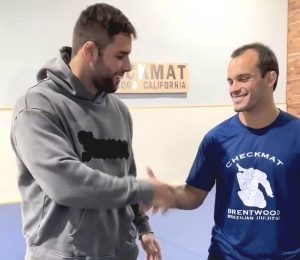
You’re childhood friends with Marcus Buchecha, one of the greatest Jiu-Jitsu competitors of all time. How has that closeness with an icon like him influenced your career? And as a professor and coach, what fundamental tips do you give your students who have the goal of gold medals in the major championships?
I’ve followed Buchecha’s career since we were both blue belt juniors. We trained in the same age category but different weight classes – he was at Checkmat in Santos and I was in São Paulo. I got to see him become the world champion in his division and the absolute, and witness the transformation from a simple, playful kid to a true icon of the sport.
I don’t need to talk about how exceptional he is as an athlete – his titles speak for themselves. But what makes me see him as one of the main references in the sport is his conduct throughout his entire career. He never “sold out” his personality to the “trash talk” generation that came from some MMA athletes. You’ll never see Buchecha disrespecting opponents or losing his martial artist composure. He has confidence in victory without needing to put anyone else down. I believe BJJ needs to give more value to athletes who aren’t just high-performance competitors, but martial artists who haven’t forgotten that Jiu-Jitsu is a martial art and try to revive the values that have been forgotten in favor of a “modern show business” that does have its demands, as a reflection of the moral decline in today’s society. But for the martial artist, it’s better to set a good example, even if few listen, than to corrupt the meaning of the martial art just to be heard by a hysterical, valueless crowd.
Coach of Mayra Sheetara (UFC athlete), how do you analyze the growth in women’s participation in Jiu-Jitsu and the role of self-defense in the daily lives of women?
I’ve been training with Sheetara for over 7 years, ever since we were living in São Paulo and training at Chute Boxe Diego Lima. My focus with her has always been on the BJJ side of things, and it’s been incredibly gratifying to see her become one of the top finishers in the UFC. We’re in constant contact and I get to see her during her training camps – she’s incredibly well-supported by the pros at American Top Team these days.
Sheetara is an incredibly strong woman, and the grit and determination she displays in her fights is a reflection of the adversity she’s overcome in her personal life. She’s dealt with all sorts of financial and health challenges, and I have the utmost respect for her mental toughness.
BJJ is essential for women – it’s the martial art where the physically weaker can overcome the stronger through technique. For women’s self-defense, it’s the premier martial art. A woman well-versed in BJJ drastically increases her chances against a physically stronger male assailant. I’d recommend that all women start training in Jiu-Jitsu – my own wife trains, and my daughter will be starting soon as well.
